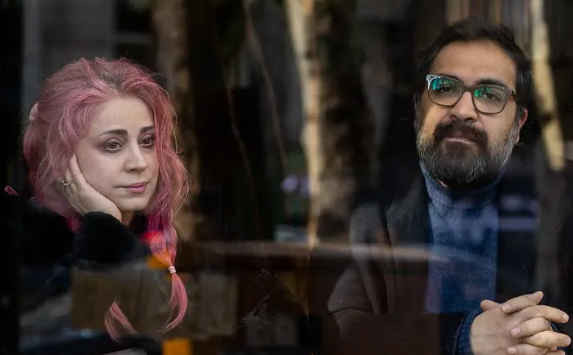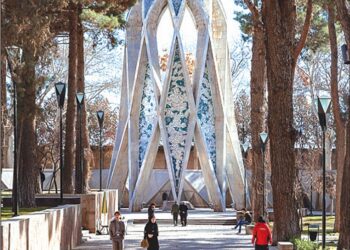The first night of the music festival, which began February 5 and ended February 21, opened with Mohsen Namjoo, who was accompanied by fellow Iranian musicians from the Bay Area. Namjoo plays the setar, a traditional Persian lute, and is revered as a master of classical Persian literature and poetry.
Praised as Iran’s Bob Dylan, the 33-year-old performer is known for his unique style of blending eastern and western musical traditions and for incorporating the words of classical Iranian poets like the 13th-Century mystic Rumi and the 14th-Century poet Hafiz.
Namjoo, now living in California, left Iran after being labeled a blasphemer for setting part of the Qoran to his music. He was later bring sentenced to prison in absentia by a Tehran court. He told the San Jose Mercury News he hopes one day to return to his native country.
Namjoo was born in 1976 in Torbat-e Jam in northeastern Iran. When he was one year old, his family moved to Mash-had where he grew up. When he was 12, his father died. After that, his family encouraged him to begin taking music lessons. He became trained in classical Persian vocal music and continued taking music lessons until he was 18.
In 1994, he was admitted to study ,usic at the University of Tehran, but since the program was not set to begin until the following year, Namjoo took two theater classes at the University of The Arts. Three years later, in 1997, Namjoo quit the music program after running into conflict with some faculty members; some of the professors at the university wanted to put him through more years of traditional Iranian music practice, which were a repetition of what he had already learned before coming to the university.
Namjoo left Iran in 2007 and is currently a visiting fellow at Stanford University in Palo Alto, California. Although he is currently seeking residency in the United States, Namjoo said he hopes to one day return to Iran. “It must be [made] clear that if I could work and create freely, I would prefer to live in Iran. Any time the situation permits, I will return,” he told the Mercury News. “The Iranian regime is not a monolith. Right now, there are people within it who can be respected, and there are people who are just generally mad.”
He added, “What the Iranian people want is to be energized.” He told the Mercury News through a translator, “My poetry is a poetry of protest for this time.”
His songs, which have received about two million hits on YouTube, fuse Eastern and Western musical traditions with Farsi word play and reflect the frustrations of many Iranians today.
























